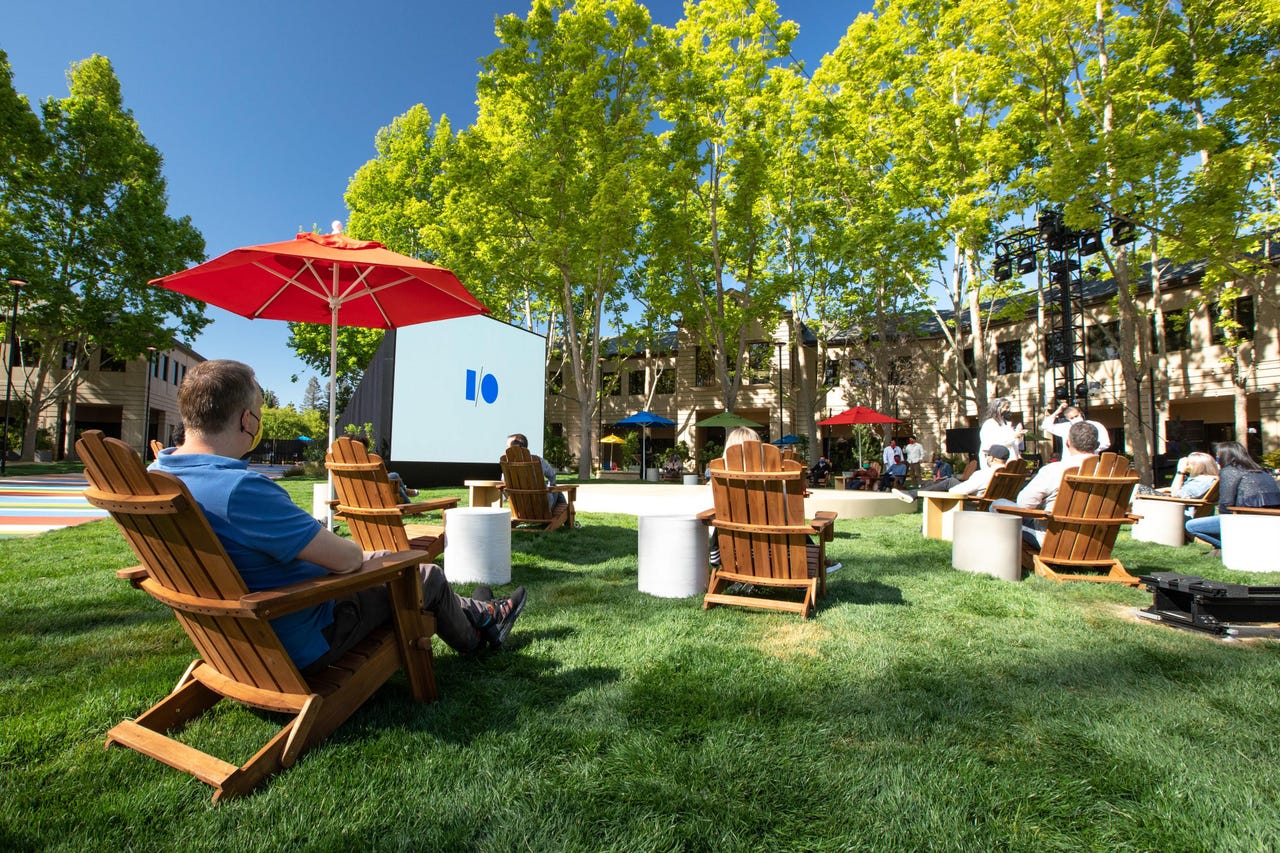Google I/O 2021: Here’s everything Google announced


We had a pretty good idea of what to expect at Google I/0 2021 before the event kicked off Tuesday morning. Most of the developer conference centers around announcements for tools and software that developers will soon have access to. But it's not all developer-focused. For example, Google we expect Google to show us a preview of Android 12, which features a revamped interface and privacy features that are sure to make everyday users happy.
Here's everything Google announced during I/O 2021.
The keynote started with the mantra "Building a more helpful Google for everyone" -- with the goal of being helpful in moments that matter. For example, Google recently added 150,000km of bike lanes in Google Maps. Also coming to Google Maps is a new eco-friendly route option that will give you the most fuel-efficient routes. Another feature called Safer Routing will use machine learning to determine the safest route for you based on weather and traffic. The goal here is to eliminate sudden breaking/stops.
Google Workspaces gets Smart Canvas. Google is adding a new collaboration tool to Workspaces: Smart Canvas. It looks like a mix of Google Sheets, Docs, and the task-managing service Asana. Google Meet is integrated, as well, and later this year, you'll be able to join a Meet video call while collaborating on a Google Doc, Sheet, or Slide. Google Meet is also receiving noise cancellation improvements, video quality features that rely on AI for lighting, framing and focussing, and translations.
Google translate and voice command updates. Last month, Google translated 20 billion web pages in Chrome. That's a huge number. On Tuesday, Google announced LaMDA, a natural language platform that's still in the research and development phase inside the company. A simulation of a conversation with LaMDA acting as the planet Pluto. The conversation was natural and something that current voice assistants would have a hard time understanding and parsing. A similar demonstration had LaMDA as a paper airplane -- both conversations were a little weird, but it truly does feel like Google is working on the future of voice interactions with computers, or phones. Eventually, Google will use LaMDA in Google Assistant, Search, and is looking into ways to give developers access to the futuristic platform.
Google Cloud customers will soon have access to Google's new TPUv4 pods, each of which offers an exaflop of processing power. Google also announced its new Quantum AI campus, a quantum computing facility where the company is working on, well, quantum computers, qubits, and processors.
Google Chrome gets new password tools. You can now import passwords from other managers into Google's tool. Deeper password manager integration is coming for Google and Android users, as well. But the most notable improvement to Google Chrome's built-in password manager is that it will now recommend when to change a password, and then walk you through the process automatically when it finds a password that's been compromised. If you opt into changing your password, Chrome will go to the site and walk you through the process of changing your password -- but really, it looks like all you have to do is tap a few buttons and Chrome takes care of it for you. It's rolling out in Chrome on Android at first.
New privacy controls come to more apps. For example, you can now delete recent search history from your Google account with a couple of taps. Maps will give you the option to turn off location history, and Google Photos will have a locked folder to help you keep your most private photos private. All account activity data is automatically deleted after 18 months. You can change the amount of time you want Google to hold onto your personal, private data that's linked to your account. Currently, 2 billion accounts have auto-delete turned on.
Search is getting some big updates. Google is working on new tools to improve search results and give users more search options. One example used during the keynote was to take a photo of a pair of boots and ask if they could be used to hike Mount Fuji. The system then analyzes the boots in the photo and provides the requested answer. Google is adding "About this result" to all English search results worldwide, providing key information and context for various websites and services. The goal is to provide valuable, helpful, and accurate information from trusted sources.
New AR experiences. Using your Android phone, you can now view how elite athletes perform through an augmented reality experience. For example, you can watch Simone Biles perform on an AR balance beam on your phone.
Google Maps gets its share of new features. Get more information about businesses while using the Google Maps Live View in augmented reality. Hold up your phone, and point the camera at a restaurant. The new Live View will show you reviews, highlight street signs, and eventually work indoors (as soon as this week in select countries). It's a bid to make it easier to navigate and discover new cities. Furthermore, Google Maps is also getting a more detailed street map view that gives a more true-to-life look to Maps.
Search results in Google Maps will also automatically adjust based on the time of the day. For example, coffee shops will have bigger pins early in the morning, or sandwich shops will later in the day. Area business will now show you how busy a neighborhood is, instead of only showing you how busy a specific business is.
Shopping with Google is getting better. Google now has a Shopping Graph that integrates information from across the web, including reviews. You can use Google Lens to examine a photo or a screenshot to look for and then search for products you can buy online. For example, if you take a picture of someone wearing a pair of shoes you want, Google Lens can identify the shoes and tell you where to buy them.
Google Chrome will soon have the option to show you all of your online shopping carts with items in them. Google will then look for any available coupons, and look at your loyalty programs to see if there's a way to save even more money. Chrome will also monitor an item and alert you if the price drops.
Google Photos has 4 trillion photos, but hardly any are ever viewed. Google is bringing a new AI feature to Photos called Little Patterns. These patterns will surface photos in your account that have three similar objects -- think coffee cups -- and then group them into photo albums. Google also wants to improve your photo viewing experience. Google will now create cinematic photos, which uses two similar photos to create an animated image using AI.
Finally, Google Photos is working on a tool that makes it easy to remove a certain person, or timeframe in your life, from your Photos' memories. For instance, hiding an ex who keeps showing up in your memories.
Android 12 gets a new look, more privacy features, first public beta. Google finally showed off the full version of Android 12 and its new approach to design called Material You. In the developer beta phase, we didn't see many consumer-facing features. But with the first public beta now out, Google unveiled a fairly significant update to its Android operating system. For example, there's an entirely new look, privacy features, and enhancements.
Better Together. Android users will soon have an app built into their phone that will convert their phone into a remote to control Android TV OS. Car-makers are also integrating Android Auto wireless, and some cars will even allow you to use your Android phone as a key for your car as a digital key. It'll work with the Pixel and Samsung Galaxy, starting with BMW.
Google WearOS and Tizen are now the same. Samsung and Google joined forces and combined Google's WearOS with Samsung's Tizen wearable operating systems. The result means faster apps, longer battery life even with always-on heart rate monitoring, and mass developer support. Developers will create apps for one platform and list the apps in the Play Store.
Also announced is that Google-owned Fitbit will start integrating its platform into Wear, later this year. And the company will even begin designing Wear-based Fitbit devices this fall.
Google is using AI to identify skin conditions, for tuberculosis screenings. Getting a proper diagnosis can soon be as simple as pointing your phone's camera at a bump or rash on your skin and getting an answer a few seconds later.
Project Starline. Google demoed a new project it's testing that makes video calls look realistic. One person sits on one side of a half wall, and on the other side of the wall is a very realistic image of the person you're talking to. The demonstration was short but looked stunning.